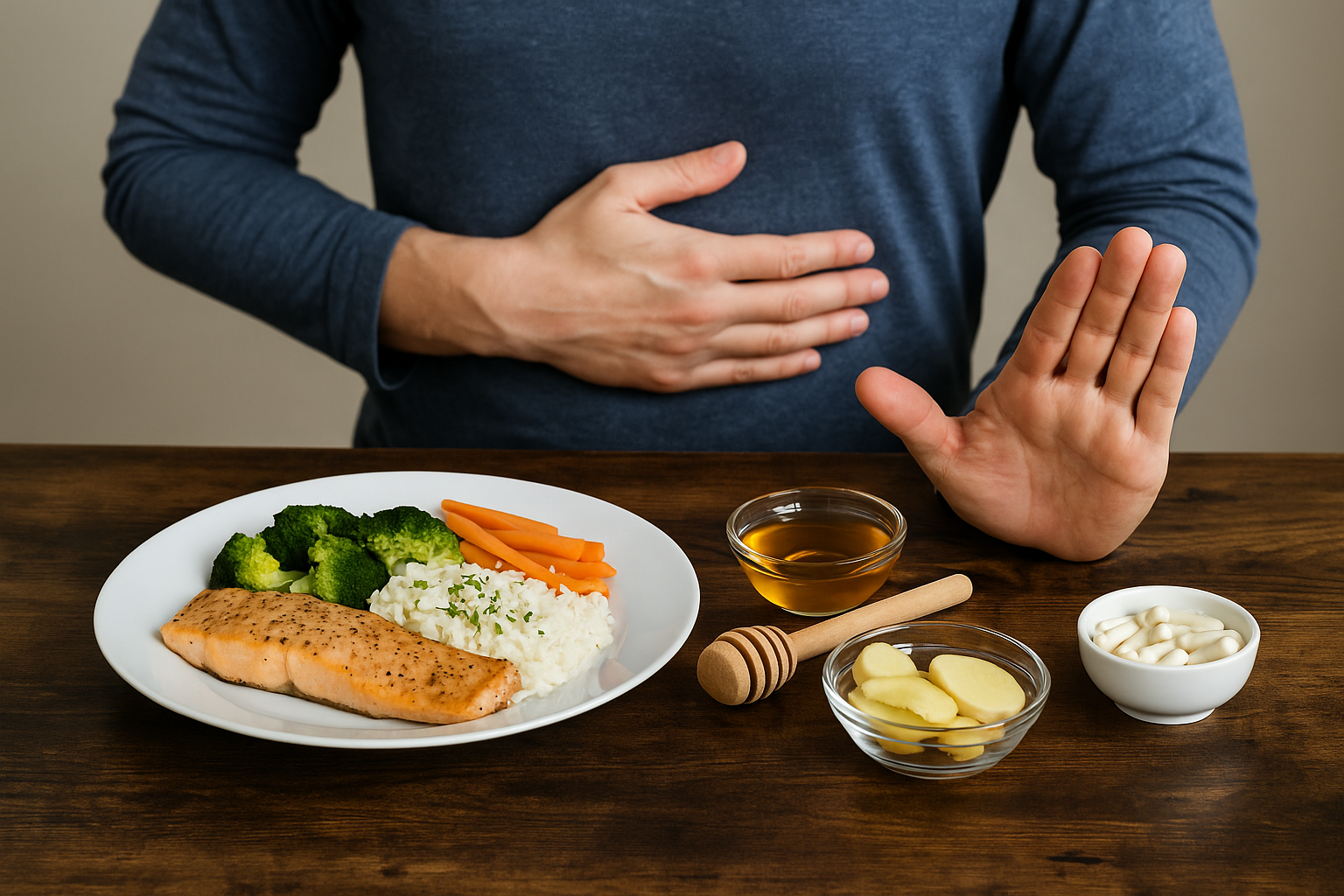We hear this question all the time. Bloating is one of the most common digestive complaints, yet it’s often brushed off as “normal.” But what’s common isn’t normal!
Why Bloating Happens (and Why It’s Not Normal)
Bloating is more than just a nuisance — it’s often a clue that your body is struggling to properly digest or respond to certain foods. If you feel like you experience bloating after eating anything, even “healthy” meals, that’s a red flag worth paying attention to.
From our holistic perspective, this could point to:
- Stress or nervous system dysregulation (digestion shuts down when you’re in fight-or-flight)
- Enzyme deficiencies (your body isn’t breaking down food efficiently)
- Gut imbalances (too much of the wrong bacteria, not enough of the good)
- Food intolerances (your body doesn’t process certain foods well)
The key takeaway: bloating is common, but it is not normal.
Quick Fixes Aren’t Enough
If you’ve searched online, you’ve probably seen endless lists of over the counters or supplements for bloating — antacids, digestive enzymes, probiotics, herbal teas, magnesium. And while these can sometimes offer temporary relief, they don’t solve the why.
Similarly, tips on how to debloat fast (like drinking water with lemon, stretching, or cutting out salt) may reduce discomfort in the moment, but they don’t get to the root cause.
We believe supplements and quick fixes can play a role, but real healing happens when you understand and address the deeper reason for your bloating.
Occasional bloating is one thing. But if you find yourself extremely bloated after every meal, that’s a sign your body is waving a louder flag. Chronic bloating may be linked to food intolerances, gut dysbiosis, or other imbalances that won’t resolve on their own.
Think of digestion as the center of your entire internal physiology because it’s in charge of the digestion and absorption of nutrients and the elimination of waste. These are two of the four pillars of health! That’s why Naturopaths have been saying for centuries that disease begins in the digestive tract.
The digestive process is at the center of any chronic disease, not just digestive issues. We were always taught using the quote by Harold Dick, ND, “You must heal the hole in the middle.“ The digestive tract is literally a hole in the center of your body. It starts in your mouth and goes to your anus.
Different parts of this tract have different types of cells which dictate the different types of functions and pH that takes place where. More to come on this later.
Digestion connects to all other systems of the body:
- There are more nerves going from the gut to the brain than the brain to the gut
- Relaxed gut = relaxed nervous system
- 80% of your immune system is in your gut lining the villi of your small intestine. Immune problems = gut problems
- Your skin is a direct reflection of your gut health. Skin issues = gut issues
- Your liver (part of your digestive system) is the center of your entire detoxification system
- Good gut health = balanced blood sugar = balanced hormones
Having good digestion means you are getting all of the nutrients you need from your food, and you are eliminating environmental and metabolic toxins efficiently.
Some signs of healthy digestion?
- Digestion is smooth as butter (ie no bloating, cramping, or discomfort)
- Minimal to zero burping, gas or heartburn
- Normal frequency with 1-2 bowel movements per day
- Stools are smooth, formed, easy to pass, don’t smell horribly, medium brown color, and sink to the bottom of the toilet (not floating)
- Clear skin, no body odor or bad breath, good energy, healthy immune system, balanced hormones, and good sleep
Our Approach
- Cut Out the Culprits
- Detox the Tract
- Support the Right Organ
- Eating Habits
This is when testing becomes essential.
Find The Most Accurate Food Intolerance Test
Not all tests are created equal. Many popular kits on the market measure IgG antibodies, which can be misleading. Just because your body recognizes a food doesn’t mean it’s harmful.
The most accurate food intolerance test is one that goes beyond lab numbers — one that’s paired with expert interpretation and a personalized plan.
That’s exactly what we offer at Haven Holistic Health. Our Food Intolerance Evaluation includes testing and professional review, so you can understand not only what foods are triggering you, but also why.
Bloating, fatigue, brain fog, skin flare-ups — they’re all connected. Instead of chasing quick fixes, we help you piece together the bigger picture so you can finally heal.
By combining accurate testing, root-cause analysis, and personalized support, we give you more than symptom relief. We give you a roadmap back to balance.
Stop Guessing, Start Listening
If you’ve been asking yourself “Why do I bloat after eating?” it’s time to stop ignoring the signals. Whether you’re bloated after certain foods or extremely bloated after every meal, your body is trying to tell you something.
👉 Don’t settle for quick fixes. Get real answers with Haven’s Food Intolerance Evaluation. Order your Food Intolerance Kit now and take the first step toward clarity and comfort.
Don’t keep guessing. Order your Food Intolerance Kit today and start listening to your body in a way that leads to healing.
Don’t keep guessing. Order Your Food Intolerance Kit today and start listening to your body in a way that leads to healing.


Leave a Reply
You must be logged in to post a comment.